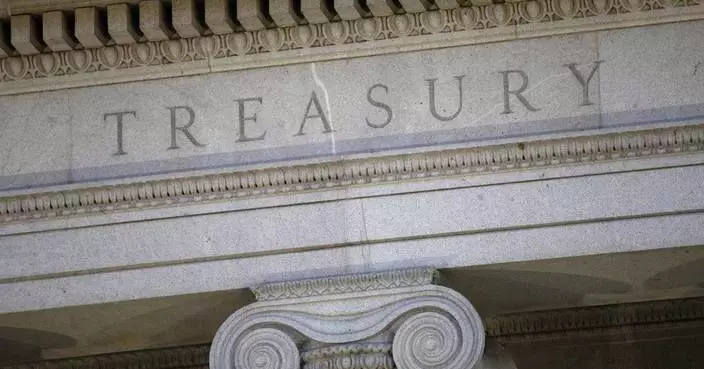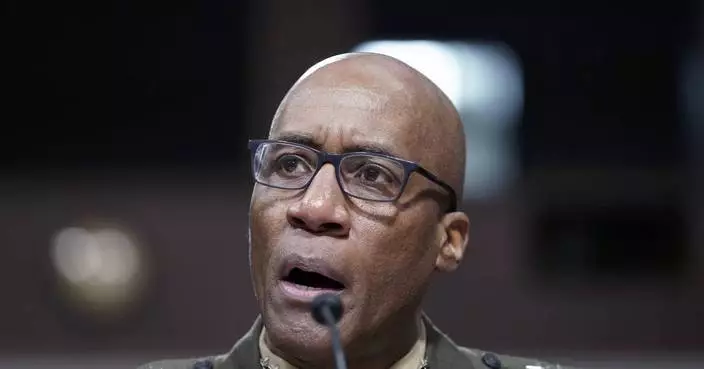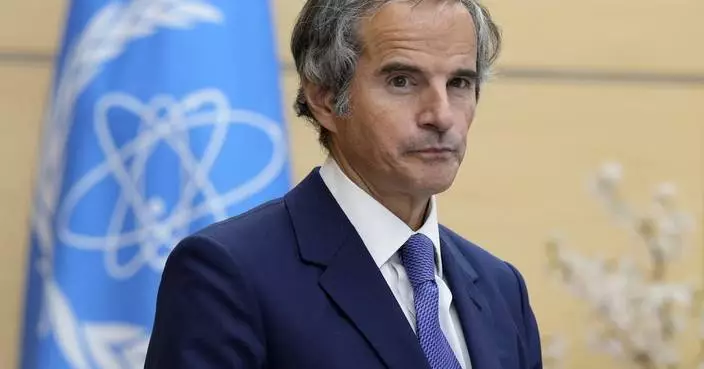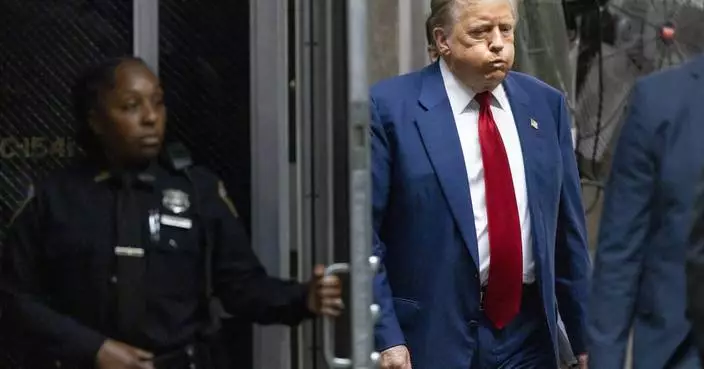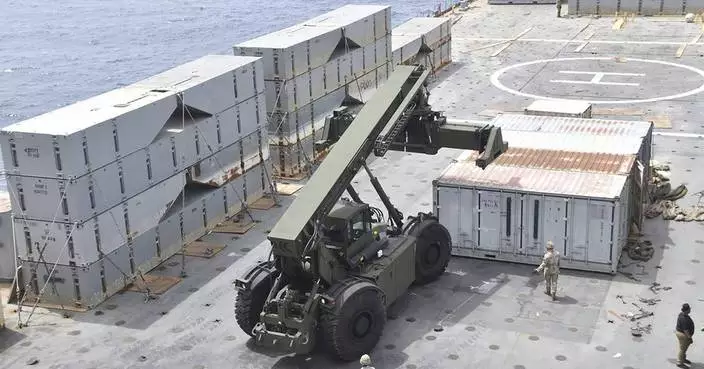Neil Young with Crazy Horse, "Colorado" (Reprise)
Neil Young is back with his old band Crazy Horse in all their ragged glory with "Colorado," a beautiful, rambling, chaotic howl against climate change, division and hate.
It's one of Young's best record in years, reminiscent of 1989's triumphant "Ragged Glory," and his first with Crazy Horse since 2012.
Young, an old man showing no signs of slowing down at 73, cranks up both his rage and tenderness as only he can with the latest incarnation of Crazy Horse behind him. The band members have spent 50 years recording on and off with Young. The latest version features longtime Bruce Springsteen guitarist Nils Lofgren, who replaces retired 70-year-old Frank "Poncho" Sampedro.
But just like Young, Crazy Horse seems to defy the passing of time with the energy and emotion they bring to "Colorado." That passion is on full display on "Mountaintop," a companion documentary that captured the recording session high in the Rockies as Young and Crazy Horse suck on oxygen and work out the new songs.
The sweetly melodic three-minute opening track "Think of Me" could easily fit on Young's 1992 "Harvest Moon." But in a sharp left turn, Young follows it up with a shambolic 13-minute jam — "She Showed Me Love" — with echoes of earlier Crazy Horse adventures like 1969's "Down by the River."
As he has for much of the past decade, Young focuses his rage on climate change, railing about "old white guys trying to kill Mother Nature."
On the standout "Rainbow of Colors," Young offers some hope amid the despair. "There's a rainbow of colors/In the old USA," Young croons. "No one's gonna whitewash those colors away."
Young's never one to whitewash anything, as he proves magnificently once again on "Colorado."
UNITED NATIONS (AP) — Russia has circulated a U.N. resolution calling on all countries to take urgent action to prevent putting weapons in outer space “for all time” a week after it vetoed a U.S.-Japan resolution to stop an arms race in space.
The Russian draft resolution, obtained Wednesday by The Associated Press, goes further than the U.S.-Japan proposal, not only calling for efforts to stop weapons from being deployed in outer space but for preventing “the threat or use of force in outer space,” also “for all time.”
It says this should include deploying weapons “from space against Earth, and from Earth against objects in outer space.”
Russia’s U.N. Ambassador Vassily Nebenzia told the Security Council when he vetoed the U,S.-Japan draft that it didn’t go far enough in banning all types of weapons in space.
The vetoed resolution focused solely on weapons of mass destruction including nuclear arms, and made no mention of other weapons in space.
It would have called on all countries not to develop or deploy nuclear arms or other weapons of mass destruction in space, as banned under a 1967 international treaty that the U.S. and Russia ratified, and to agree to the need to verify compliance.
Before the U.S.-Japan resolution was put to a vote on April 24, Russia and China proposed an amendment that would call on all countries, especially those with space capabilities, “to prevent for all time the placement of weapons in outer space, and the threat of use of force in outer spaces.”
The vote was 7 countries in favor, 7 against, and one abstention and the amendment was defeated because it failed to get the minimum 9 “yes” votes in the 15-member Security Council required for adoption.
U.S. Ambassador Linda Thomas-Greenfield told the council after the vote that Russian President Vladimir Putin has said Moscow has no intention of deploying nuclear weapons in space.
“Today’s veto begs the question: Why? Why, if you are following the rules, would you not support a resolution that reaffirms them? What could you possibly be hiding,” she asked. “It’s baffling. And it’s a shame.”
Putin was responding to White House confirmation in February that Russia has obtained a “troubling” anti-satellite weapon capability, although such a weapon is not operational yet.
Russia’s U.N. Ambassador Vassily Nebenzia said after casting the veto that the U.S.-Japan resolution cherry picked weapons of mass destruction.
He said much of the U.S. and Japan’s actions become clear “if we recall that the U.S. and their allies announced some time ago plans to place weapons … in outer space.”
Nebenzia also accused the U.S. of blocking a Russian-Chinese proposal since 2008 for a treaty against putting weapons in outer space.
Thomas-Greenfield accused Russia of undermining global treaties to prevent the spread of nuclear weapons, irresponsibly invoking “dangerous nuclear rhetoric,” walking away from several of its arms control obligations, and refusing to engage “in substantive discussions around arms control or risk reduction.”
Much of the Russian draft resolution is exactly the same as the U.S.-Japan draft, including the language on preventing an arms race in space.
It calls on all countries, especially those with major space capabilities, “to contribute actively to the objective of the peaceful use of outer space and of the prevention of an arms race in outer space.”
Thomas-Greenfield said the world is just beginning to understand “the catastrophic ramifications of a nuclear explosion in space.”

FILE - U.S. Ambassador to United Nations Linda Thomas-Greenfield speaks on Thursday, April 18, 2024, in Tokyo. The U.N. Security Council is set to vote Wednesday, April 24, 2024, on a resolution announced by Thomas-Greenfield, calling on all nations to prevent a dangerous nuclear arms race in outer space. It is likely to be vetoed by Russia. (AP Photo/Eugene Hoshiko, Pool, File)




